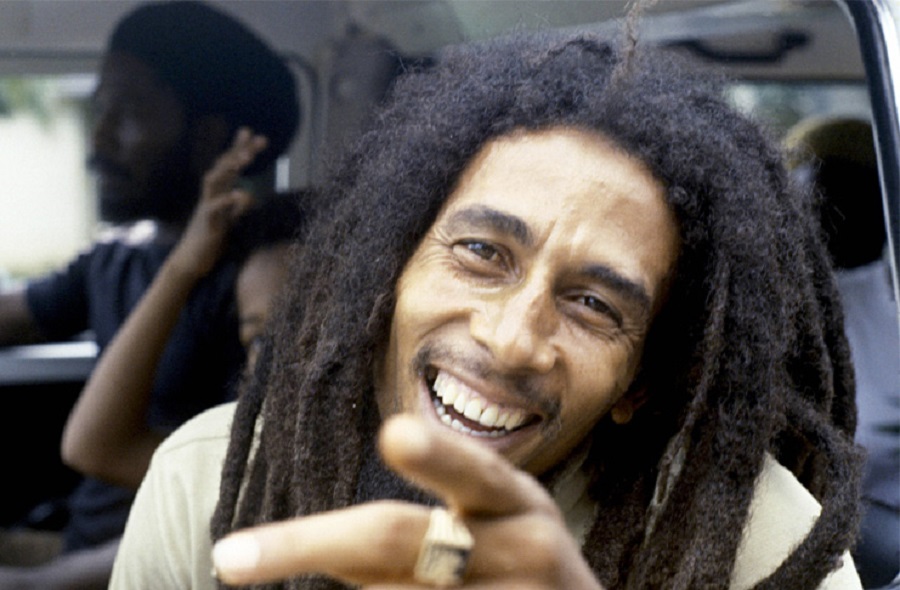RIO DE JANEIRO, BRAZIL – “Bob Marley was one of the greatest interpreters of this consciousness of exclusion, of inequality. He was the last artist to whom I devoted a deep, specific and permanent attention. Nowadays he is still one of my favorite artists to listen to,” Gilberto Gil wrote on social networks on May 11, 2020, exactly one year ago.
At that time, it was 39 years since Bob Marley (February 6, 1945 – May 11, 1981) had left the stage, victim of cancer.

Yesterday, May 11, 2021, it was 40 years since the pop universe lost the physical presence of the Jamaican singer, songwriter and guitarist, but Marley – forever enthroned as the king of reggae – remains alive through the power of the music he created during his 20-year professional career. This strength is also political and spiritual, remarkable traits in Marley’s work and also in Gil’s music.
At a time when Brazil invents the legacy of the Jamaican artist for the 40th anniversary of Marley’s death, it is worthy of note that Gilberto Gil was the voice that truly popularized Bob Marley’s reggae in Brazil.
The musical genre born from rocksteady and ska, 1950s rhythms that preceded it in the evolution of Jamaican music, reggae began to spread beyond Jamaica in the early 1970s.
In Brazil, Caetano Veloso is attributed the primacy of having embedded reggae quotes in the lyrics of the song Nine out of ten, composed in 1971 and recorded for the album “Transa” (1972), released two years before English guitarist Eric Clapton contributed to the worldwide popularization of reggae with the recording, in 1974, of I shot the sheriff (Bob Marley, 1973), a reggae song released by Marley the year before in a record signed with The Wailers band.
Attentive to the signs of reggae since his exile in London, alongside Caetano, Gil flirted with reggae in the album “Refavela” (1977) in the track “Sandra” (Gilberto Gil, 1977). However, nothing compared to the national success of “Não chores mais,” a song released by Gil in 1979 as a single that reached the top of the Brazilian charts that year.
“Não chores mais” is the Portuguese version, written by Gil, of the reggae “No woman, no cry”, whose authorship is credited only to Jamaican composer Vincent Ford (1940 – 2008), although it is almost unanimous that Marley participated in the creation of the lyrics of the song released in 1974 by the singer in the album Natty dread, recorded with The Wailers, and popularized in a live version in a 1975 album.
Authorial issues aside, the fact is that reggae was first heard by the Brazilian public through Gil’s voice. “Não chores mais” was a massive national hit. And Gil never again dissociated himself from reggae in his remarkable musical career.
Bob Marley’s influence on the work of the Bahian composer is such that, 19 years ago, Gil released the album Kaya n’gan daya (2002), entirely dedicated to the music of his Jamaican colleague.
In this album, Gil gave voice to Marley’s reggae songs in their original English – especially Three little birds (Bob Marley, 1977) – and translated into Portuguese other songs from his repertoire, such as Lively up yourself (Bob Marley, 1974), which became “Eleve-se alto ao céu”. Lively up yourself was included in the same Natty dread album in which Marley introduced No woman, no cry to the pop universe.
In fact, Gil re-recorded the song “Não chores mais” on the Kaya n’gan daya album, with an arrangement reminiscent of the original 1979 recording and with the participation of the trio Paralamas do Sucesso. There is a touch of this Rio de Janeiro band, a reggae enthusiast in its repertoire, when Gil sings the original reggae lyrics in English after reliving the lyrics of the Portuguese version that promoted Marley’s legacy in Brazil in 1979 through the voice of the Bahian artist.
Source: G1

